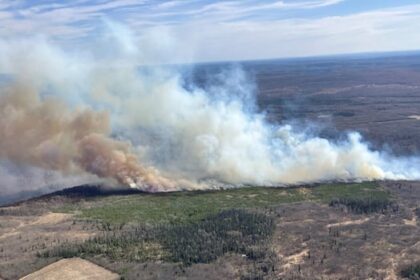Article contentCOLLABORATIVE EFFORTS Article contentAdams said collaborative efforts allowed them to come up with a definition of a gradual onset psychological injury (GPI), which WCB defined as caused by “repeated, significant stressors at work — most often ongoing bullying or harassment. Feeling stressed about things like missing deadlines, difficult tasks, or not getting along with a co-worker is normal — and not usually covered by WCB.” Article content“And because we did that sort of collaborative effort, and we had a good nine months to get ready before it became into effect in September of 2024,” Adams said. Article content“We ended up doing a really good job, and we’ve had fewer injuries than we expected, fewer claims that have come through, and way better preparedness at employers who now have policies in place that say this is the definition of harassment or bullying in the workplace. And we won’t have any of that in our workplace. Article contentArticle content“So I think Nova Scotia can be proud of the way that we have stepped up and dealt with psychological safety.”Article contentLESS THAN FLATTERINGArticle contentAdams said that greater accountability has been a key theme of hers since taking on the CEO role in August 2023, amid a provincial government review on the workers’ compensation system in Nova Scotia.Article contentThe review came back with less-than-flattering issues: the workers compensations’ claims process was too complicated; WCB took too long to get back to people; and compared to other provinces in Canada, it took even longer for employees to return to work after an injury.Article contentAccording to WCBNS, there were more than 500 time-loss claims in Cape Breton in 2004 — that meant workers had to take time off from work to recover from their workplace injury. More than 1,400 workers have gone onto long-term benefits in Cape Breton. On top of that, Adams said, she had heard that workers’ compensation was just too expensive.Article contentArticle content“In the past, we have underserved Nova Scotians,” Adams said. “Now with this transformation, with accountability, starting with ourselves, we are providing the service that Nova Scotians deserve.”Article contentSTRONGER LEGISLATIONArticle contentFollowing the province review of the system, amendments to the former Workers’ Compensation Act were introduced and passed in the provincial legislature in September 2024, becoming what’s now known as Stronger Workplaces for Nova Scotia legislation.Article contentIn July, new legislation known as the Duty to Co-operate took effect, which requires collaboration between Nova Scotia employers, workers and WCBNS to support an early and safe return to work. Article content“It made it say that we were already holding everyone accountable,” Adams said. Article content“But now baked into the legislation it says, more or less, ‘Employer, you must accommodate this worker’ in something that the person can functionally do in accordance with, say, what the physio or the doctor says. And if you say, ‘Oh, no, we don’t really want to,’ then I can find that employer. Article content“Now if a worker says, ‘Oh, the employer’s accommodating me, but I don’t really want to do that work,’ then I can stop benefits — that’s now in the legislation. Article content“Although we haven’t really done any of those things, just the fact that it’s in the legislation — showing that we’ve changed our ways — has improved the accountability of all the parties involved.”Article content
N.S. Workers Compensation Board addressing psychological injuries











